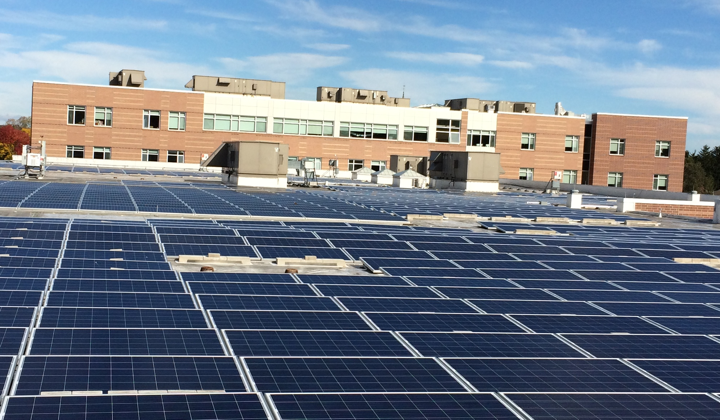Protect State's Solar Credits

Beacon Hill lawmakers should rebuff efforts to lower net metering credit rates and instead continue to provide incentives for the state’s growing solar industry.
Net metering is a mechanism that allows solar panel hosts to sell unused electric power back to the energy grid for a credit on their utility bills.
A House proposal would lower the net metering credit rate paid by power companies to solar users by up to 75 percent, from current retail prices to a wholesale rate. A Senate bill is less harsh, but could negatively impact community share and low-income solar projects.
The proposals are now before a conference committee.
Such a dramatic reduction in net metering credits would likely put an end to Newton’s plans for a community solar share project, making it economically unfeasible.
Last week, Mayor Setti Warren and 31 other municipal leaders across the state sent a leader to key state legislators and Beacon Hill leadership, urging them to reject the energy bills. Among other issues, they pointed out that when the state of Nevada approved similar rate changes solar development slowed and solar companies left that state, resulting in the loss of more than a thousand jobs.
There’s only one downside to Newton’s being the Garden City: tree shade is so substantial that less than 20 percent of homes here are suitable for the installation of photovoltaic panels. A community solar share project that could come online here as early as next year would allow low-income residents and the majority of homeowners who can’t install PVPs to share in the savings from the city’s municipal solar installations — but only if the current retail-rate net metering credit reimbursements are maintained.
Indeed, the savings from solar energy should be significant here: The city plans to lease 11 municipal sites for the development of an additional three megawatts of solar power by year’s end, which is predicted to save residents about $4 million over the course of two decades.
That can’t happen if solar reimbursements are downgraded to a wholesale rate.
Also at issue is whether the state’s net metering cap will be raised. If the cap were not lifted, according to Emily Rochon, director of energy and environmental policy for Boston Community Capital, large-scale solar projects would lack the financial incentives needed for development, in Newton and many other communities. Projects aimed to help low-income residents, she said, would all but end,
All of us subsidize the solar energy industry through a small surcharge on our electric bills. But if net metering rates aren’t maintained and the cap not raised it’s unlikely most of us will have the opportunity to share the savings offered by solar energy. That would be a shame, especially in a state that has been a leader in the development of solar energy.
First Published in the Newton Tab on March 23, 2016


